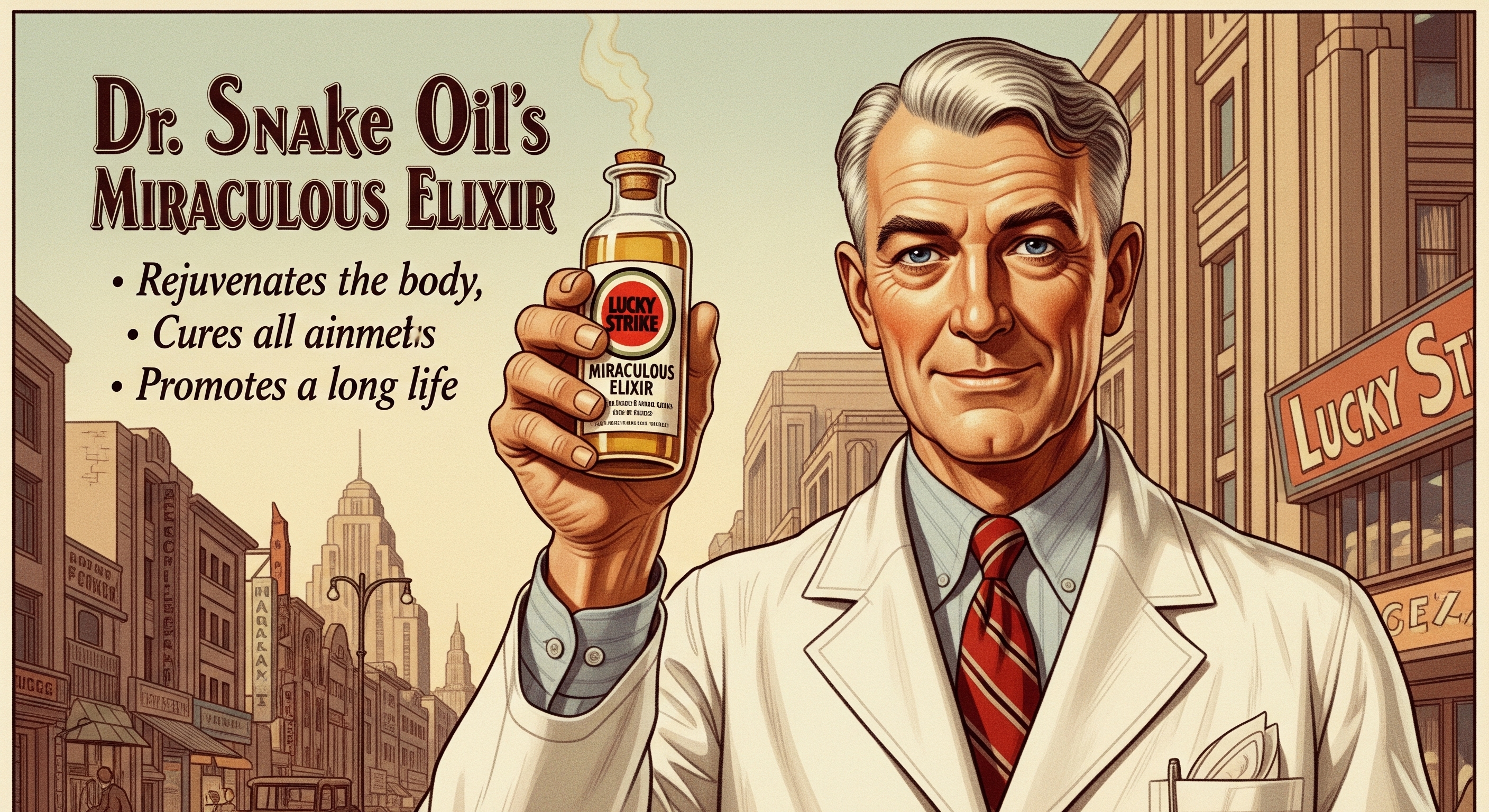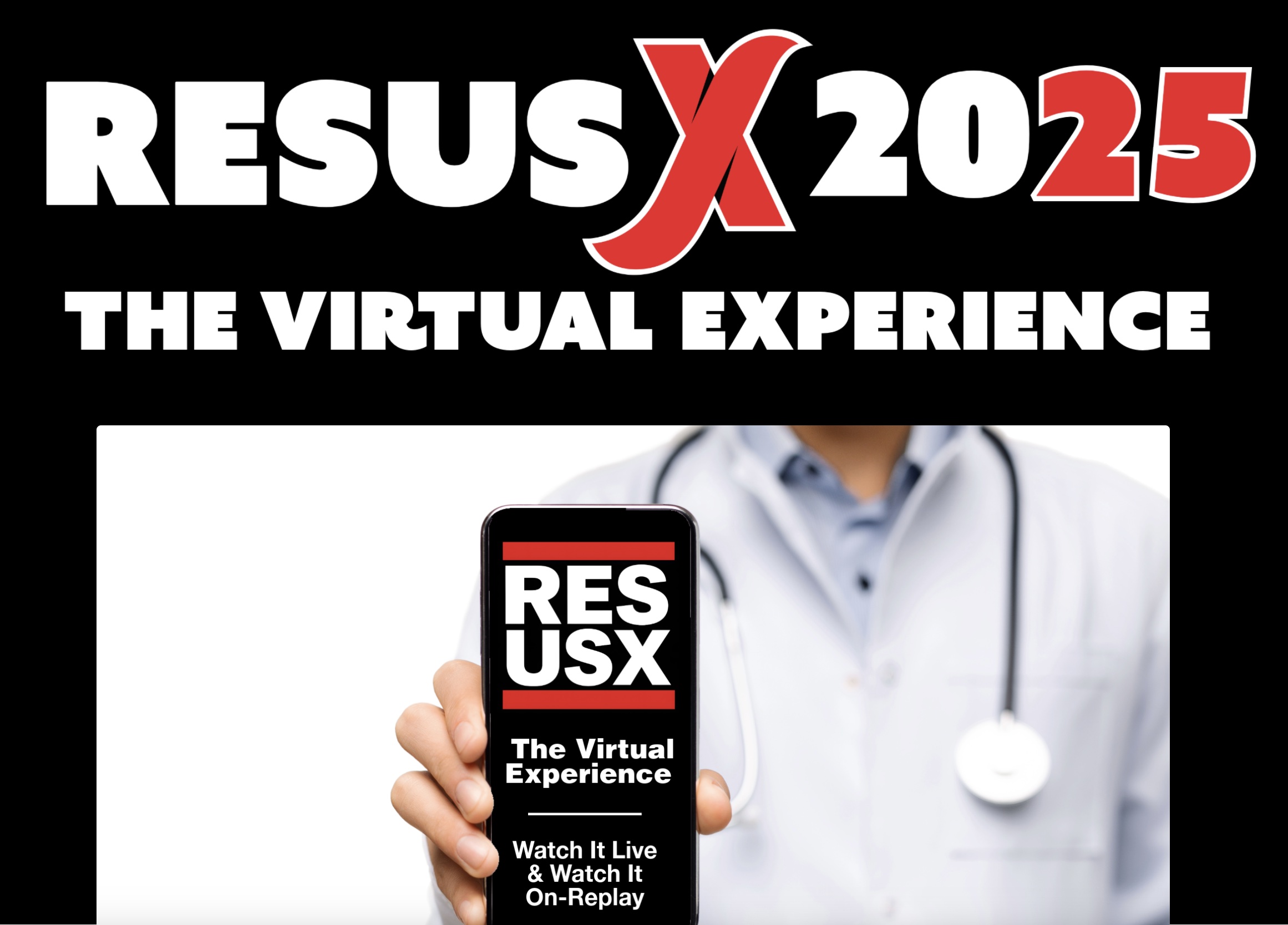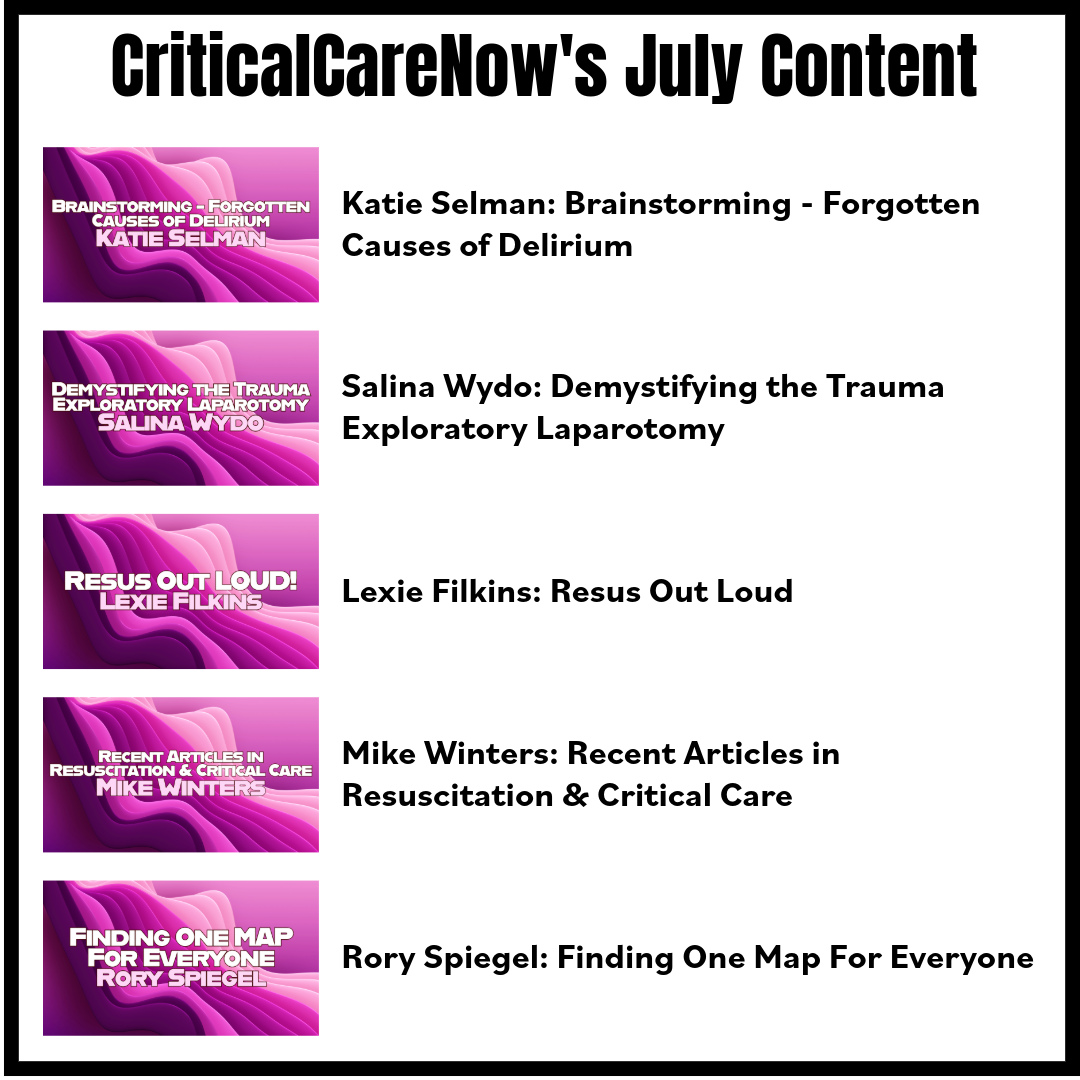ResusNation #124


You Won't Believe What "Snake Oil" REALLY Was!
Before "snake oil" became synonymous with scams, it was a genuine remedy! For hundreds of years, traditional Chinese medicine utilized oil from the Chinese water snake to soothe aching joints, a practice that continues even today. This fascinating treatment likely made its way to America with Chinese laborers building the Transcontinental Railroad. After a grueling day of work, these laborers would rub the oil on their sore joints, seeking relief. It turns out they were onto something!
Modern science has shed light on why this ancient remedy might have been effective. We now know that snakes are packed with eicosapentaenoic acid (EPA), a powerful omega-3 fatty acid. This isn't just any fat; EPA is well-known for its anti-inflammatory properties, meaning that original "snake oil" might have actually helped reduce pain and swelling. So next time you hear "snake oil," remember its surprising journey from traditional medicine to a notorious euphemism!
Welcome to the 124th edition of ResusNation!
Stop Guessing and Use H.I.M.A.P.
In my years of practice, I’ve seen countless scenarios where a structured approach to ultrasound in shock patients makes all the difference. While I'm pretty flexible about the specific protocol you choose—honestly, if there was a "HANEY" protocol, I'd be all over it!—the H.I.M.A.P. protocol has proven to be an incredibly robust framework for me. It guides us through a critical assessment, starting with the heart (H) to evaluate ventricular function, pericardial space, and valves. For the "I," I’ve personally found that relying solely on the IVC for volume assessment is a pitfall; instead, I broaden it to a comprehensive assessment of intravascular volume status, which is a much more reliable indicator in my experience.
Moving on, "M" for Morison's pouch, along with the other three views for intra-abdominal fluid, is non-negotiable. It’s saved me from missing crucial internal bleeding more times than I can count. The "A" for aorta is vital for ruling out life-threatening dissections or aneurysms, a quick but critical check. And finally, while "P" is traditionally for pneumothorax, I expand it to "pulmonary" because I'm not just looking for a collapsed lung; I'm assessing for hemothorax, pneumonia, or B-lines. This structured approach ensures we're not missing any pieces of the puzzle when patients present in shock, a lesson I've learned and refined over years of hands-on experience.
Watch the full video here and leave a comment.
Don't forget to like and follow my IG, TikTok, YT, Facebook or Linkedin accounts.


🔥 ResusX:2025 Goes VIRTUAL🔥
You've heard the buzz about ResusX:2025 happening live in Philadelphia, and now, we're thrilled to announce what so many of you have been waiting for: virtual access to ResusX:2025 is officially LIVE!
Starting today you can join us from anywhere in the world to experience three intensive days designed to sharpen your skills and elevate your critical care practice. No travel required, just pure, unadulterated resuscitation mastery delivered straight to you!
This isn't just another online conference. ResusX:2025 is a dynamic, hybrid event packed with hands-on training, essential theory, and lively discussions. Our "rockstar" faculty, true legends in resuscitation, will deliver electrifying talks, spark spirited debates, and lead live demos with incredibly realistic simulations.
Choose Your Virtual Adventure:
Watch Live – Just $127 (Save big, usually $297!):
- Catch every moment live from Philadelphia.
- Chat with faculty and fellow attendees in real-time.
- Score some awesome prizes!
Live + Replay – Just $197 (Normally $427, huge savings!):
- Everything in the "Watch Live" package.
- Plus, get 30-day replay access to revisit all the content.
Lifetime Access + Swag + Summaries + CME/CEU – Just $247 (An incredible deal, usually $547!):
- Includes everything from the "Live + Replay" package.
- Lifetime access to all conference content – forever!
- Rock an official ResusX:2025 T-shirt.
- Downloadable lecture summaries for quick review.
- Earn 20.0 AMA PRA Category 1 Credits™ or CEU to boost your credentials.
You're going to watch the exact same incredible content as our in-person attendees, delivered right to your screen. We even offer special discounts for non-physicians, and you can submit your burning questions for our faculty to answer live!
Don't let this chance slip by to sharpen your skills and truly master resuscitation, all from the comfort of your home or office.
Are you ready to become a resuscitation legend? Click below to secure your virtual spot today before these early bird prices vanish!

What's The Deal With Steroids In Critical Care?
When a loved one is in the ICU battling severe conditions like pneumonia, sepsis, or acute respiratory distress syndrome (ARDS), every treatment decision matters. These critical illnesses trigger intense inflammation, which can severely damage organs and lead to life-threatening complications. For years, there's been debate among doctors about whether corticosteroids—powerful anti-inflammatory medications—actually help these patients, or if their risks outweigh the benefits. This new, large-scale study, combining data from many previous trials, offers some compelling answers. It found that using corticosteroids significantly reduced the chance of critically ill patients dying in the short term.
This research, involving over 10,000 patients, suggests that corticosteroids are not only associated with lower short-term mortality but also lead to shorter stays in both the intensive care unit and the hospital, and less time on breathing machines. Patients also showed improved oxygen levels and a greater chance of recovering from shock. While there was a slight increase in high blood sugar, the study found no significant difference in infection rates or stomach bleeding, which are common concerns with steroids. These findings highlight the importance of starting corticosteroid treatment early (within 72 hours), using a low dose (like less than 400 mg/day of hydrocortisone or its equivalent), and continuing treatment for at least 7 days for the best outcomes. However, it's important to remember that not all critically ill patients are the same, and these results can't be applied to everyone in the ICU. Future studies will need to focus on identifying which specific patients will benefit most from this treatment to truly personalize care.
Here's my Takeaways:
- Finding: Corticosteroids were associated with a 15% reduction in short-term mortality in critically ill patients.
- Practice Impact: Early, low-dose, and prolonged corticosteroid therapy should be considered for critically ill patients with severe community-acquired pneumonia, sepsis/septic shock, or acute respiratory distress syndrome to improve survival and reduce hospital stay.
- Population: Critically ill adult patients (aged 18 and over) admitted to the ICU with severe community-acquired pneumonia, sepsis/septic shock, or acute respiratory distress syndrome.
- Limitation: The study encompassed nearly five decades of trials with varying clinical practices and patient characteristics, making it challenging to generalize findings to all ICU populations, and further research is needed to pinpoint specific patient subgroups who will benefit most.
Want to learn more? Read the full study "Efficacy and safety of corticosteroids in critically ill patients: a systematic review and meta-analysis" by Lei Cao et al. in BMC Anesthesiology.
Watch the July's Videos Now!

If you're an All-Access Member, you're in for some great content this month. We have FIVE videos hand-picked by our staff that are high-yield and our most highly watched. We're featuring
- Selman on "Brainstorming – Forgotten Causes of Delirium"
- Wydo on "Demystifying the Trauma Exploratory Laparotomy"
- Filkins on "Resus Out Loud"
- Winters on "Recent Articles in Resuscitation & Critical Care"
- Spiegel on "Finding One MAP For Everyone"
Each month we bring you fresh new content from the best of the best in resuscitation. If you're an All-Access member, go watch these videos NOW! If you're not, then sign up here.


Are you a member of ResusNation? For less than a cup of coffee, you can get even more content from CriticalCareNow. Digital teaching sessions, podcasts, free video lectures, grand rounds, and so much more can be your today. Come watch on replay all the content that CriticalCareNow does live. Check out the membership options below and decide the right one for you.
Do you want even more resus content anytime you want? For less than a cup of coffee, you can get even more content from @CriticalCareNow. Digital teaching sessions, free video lectures, grand rounds, and so much more can be your today. Come watch on replay all the content that @CriticalCareNow does live.
Check out the membership options below and decide the right one for you.


Get Access To The ResusNation Today!





Responses